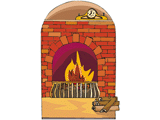Alas, GINNY, it was the March edition. No matter..you can still get the Socrates bio.
if you like.
PATH, you embolden me to confess. After trying several times to read Plato's Republic,
and getting bogged down in the fifth chapter(?) every time, I came to the brave conclusion
that it didn't make sense to me for the simple reason that it DIDN'T MAKE SENSE! The
brilliant man's ideas were amazing for his day, but in the light of the knowledge we've
gained since, I take leave to think they were mistaken.
ps: I knew there was an instrument for scraping the skin, but couldn't remember what is
was called. And aren't those vases beautiful?
GINNY, the translation you cite, of O's response to Laodamas, has too modern a sound to
me. I think it's the phrase "paid my dues" that does it. I like Fitzgerald's translation.
"Laodamas, why do you young chaps challenge me?
I have more on my mind than track and field-
hard days , and many, have I seen, and suffered,
I sit here at your field meet, yes; but only
As one who begs your king to send me home."
As you say, a nice and humble reply. And yes, it did increase my respect for him.
